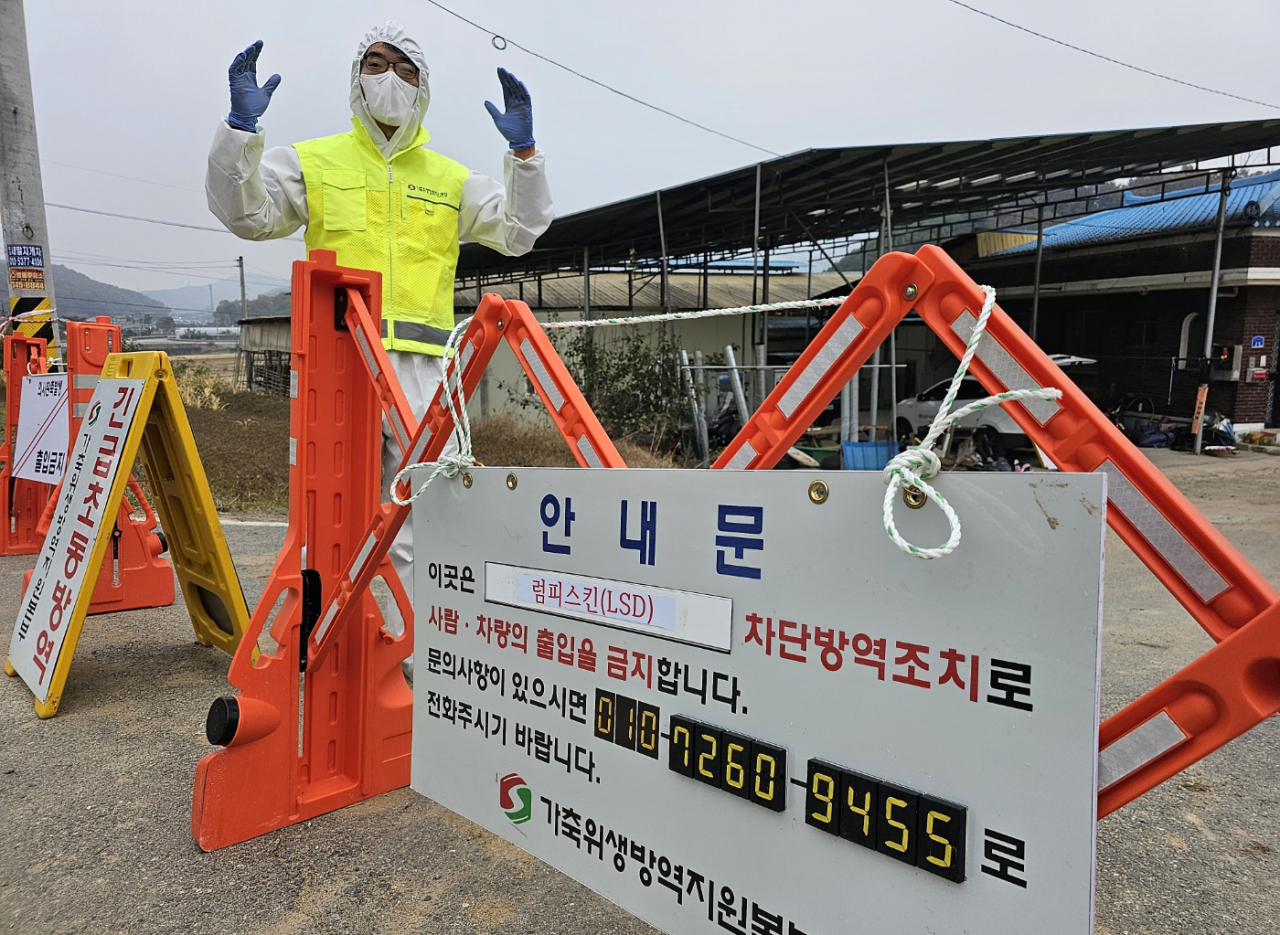S. Korea goes all-out to contain nationwide spread of lumpy skin disease
By YonhapPublished : Oct. 27, 2023 - 10:23

South Korea has expedited the vaccination campaign for cattle and intensified quarantine measures to curb the spread of lumpy skin disease amid deepening woes over its major dent to the beef industry.
Since the first ever outbreak of the viral infection last week, the country has so far confirmed 47 LSD cases nationwide, according to the Ministry of Agriculture, Food and Rural Affairs.
Nine additional cases were reported the previous day alone, and the authorities are carrying out an in-depth investigation into seven suspected cases.
A total of 3,321 cows from 47 farms nationwide either were culled or are set to be culled, it added.
The agriculture ministry has been scurrying to further expand its emergency vaccination campaign by securing more vaccines from abroad, and the interior ministry vowed to manage the overall vaccination program based on plans drawn up by each local government.
So far, health authorities have administered the vaccine to 217,000 out of 253,000 cows subject to emergency inoculation.
The country has mobilized all resources available to intensify disinfection work at farms, related facilities and other vulnerable regions, including border areas, and is carrying out intensive testing on cattle at farms adjacent to affected ones for preemptive measures, the ministry said.
LSD, which does not affect humans, is a highly infectious disease that causes skin lesions, fever and loss of appetite, often leading to a fall in milk production and even death. It affects cattle and buffalo via mosquitoes and other blood-feeding insects.
It typically takes around three weeks for vaccinated cattle to develop protective antibodies against the disease, officials said.
Fears of its impact on the livestock industry have grown further, particularly after the northeastern county of Hoengseong, Gangwon Province, best known for the Korean-breed cattle named "hanwoo," reported the first LSD case Thursday.
Hoengseong has a favorable environment for cattle farming, and the local government is working on a marketing campaign to brand the county as the origin of quality beef in South Korea.
More than 1,300 farms in the town are raising over 62,000 cows, according to government data.
Prices of hanwoo beef have risen around 10 percent due to supply woes following the outbreak of the disease.
The wholesale price of hanwoo beef came to around 18,000 won (US$13.3) per kilogram last week but rose to over 20,000 won Tuesday before falling to the 19,000 won level Wednesday, according to government data.
"The standstill order issued following the outbreak has led to a modest fall in supply. But it is unlikely to cause a major impact on the market as the meat stock has grown nearly 40 percent from a year earlier," a ministry official said.
The government will closely monitor the situation and devise measures to ensure stable supplies and promote their consumption, he added.
Major retail stores said they will plan to hold events as planned, in cooperation with the government, to promote the sales of hanwoo beef and offer a discount as they were able to secure enough volume for the events before the outbreak.
The number of cows raised at local farms combined came to about 3.56 million, the ministry said. (Yonhap)




















